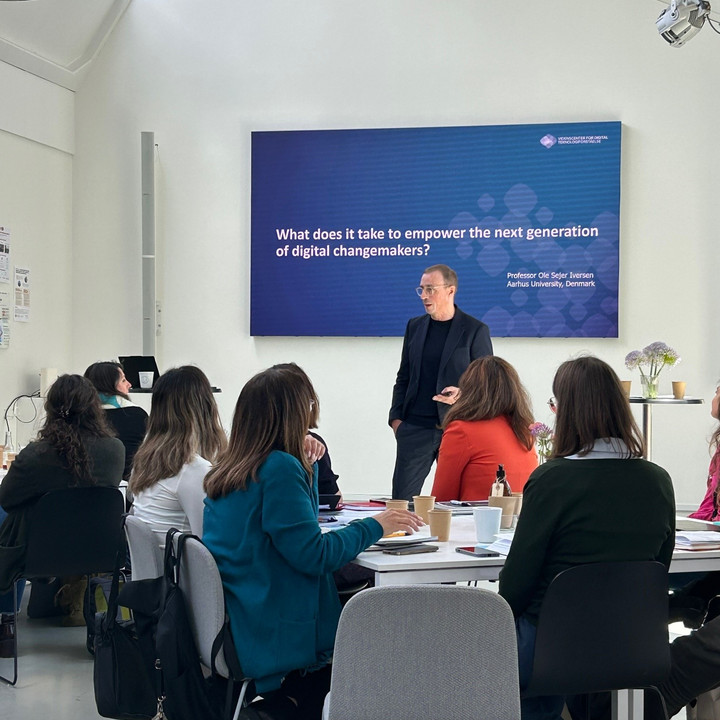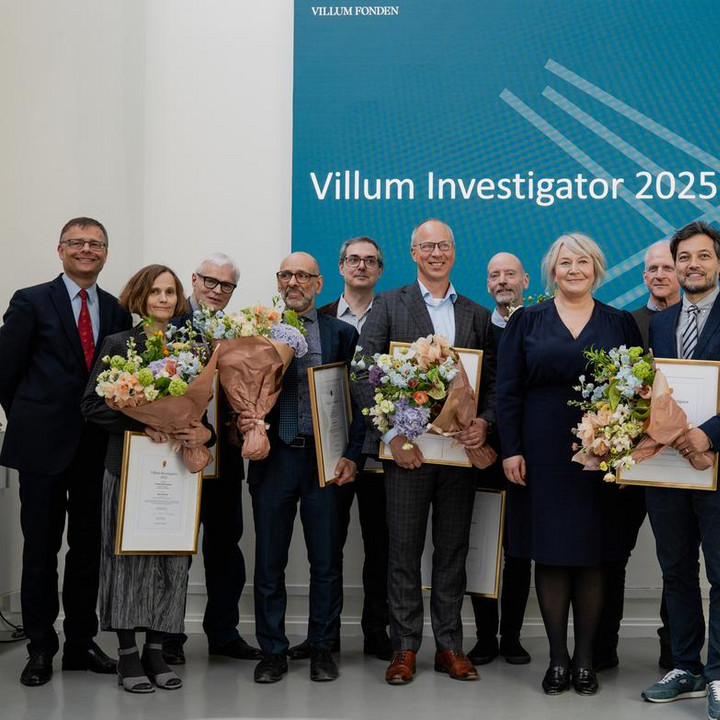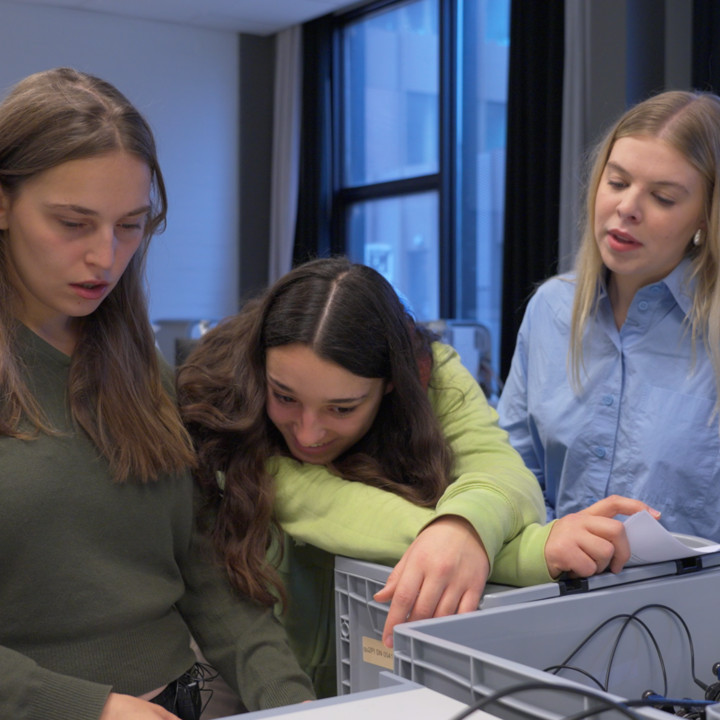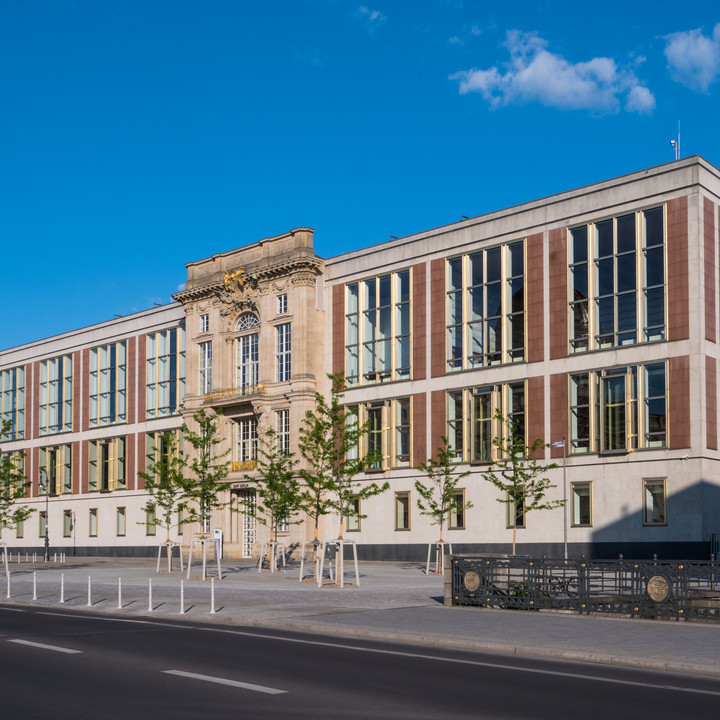Danish research centre on threshold of quantum revolution

Within a few decades, quantum physics will reshape society, as we know it. This will include among other things the quantum computer, which researchers worldwide are working to develop.
VILLUM FONDEN has granted 30 million DKK for a new research center at the University of Copenhagen where quantum computer software is to be developed. Additionally, the Centre will generate knowledge about quantum information, how it behaves in space and time, and how in the future, it among other things might be used for teleportation.
‘The Villum Centre of Excellence for the Mathematics of Quantum Theory’ (QMATH) is based at the University of Copenhagen’s Department of Mathematical Sciences and will focus on an interdisciplinary field where mathematics, computer science and physics combine.
The centre is led by Professor Jan Philip Solovej, Professor Matthias Christandl and Professor Bergfinnur Durhuus (left to right). Approximately 15 PhD students and Postdocs are associated with the centre.
According to Centre Director, Professor Jan Philip Solovej, one of the world's preeminent researchers in the field of mathematical physics and quantum information theory:
“At the Centre, we have been able to assemble some of the world's leading researchers to enhance our understanding of the nature of quantum information. In part to gain greater insight into the world around us, from atoms to black holes, but also to contribute to the development of the quantum software and quantum communication. This will make it possible to develop a quantum computer in the longer term. The applications for society are tremendous and include unbreakable encryption, totally secure communication, dizzyingly fast calculations and vastly improved search capabilities.”
Among his other positions, Professor Jan Philip Solovej has served as a professor at Princeton University for a number of years.
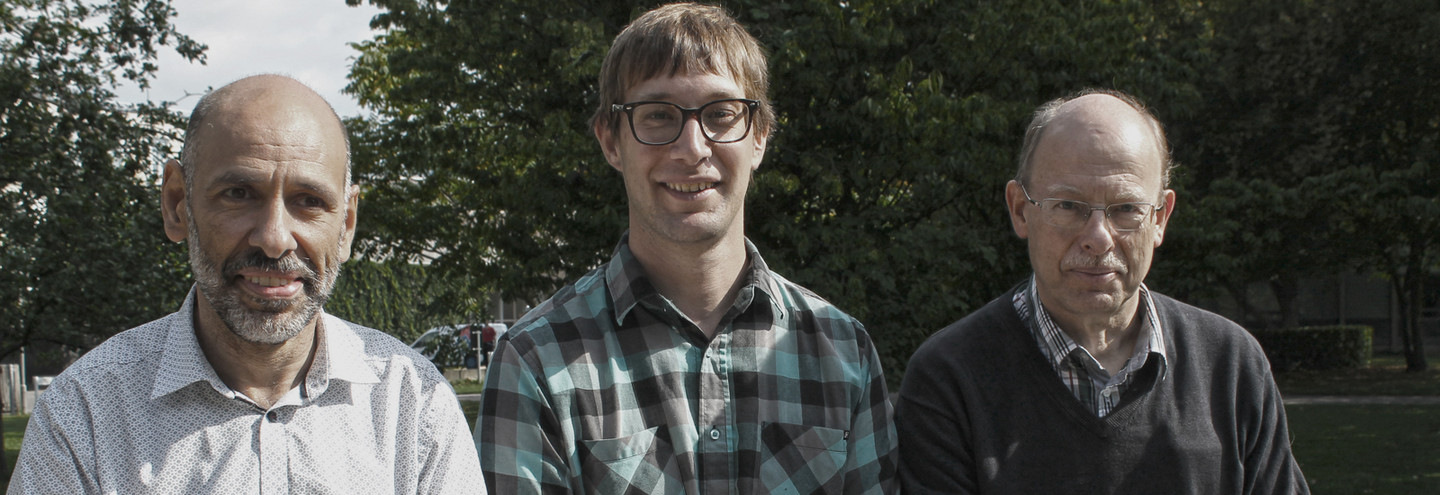
Quantum physics was developed at the start of the 20th century to describe atoms and molecules. It has revolutionized our worldview and challenged classical understandings, including that of Niels Bohr's atomic model from 1913.
The quantum computer
As in the case of a classical computer, the quantum computer has software and hardware. The hardware part is developing rapidly, but is still very far from a commercial implementation and the need for new theoretical solutions to a number of fundamental challenges is in demand. International top universities (ETH Zurich, Caltech, MIT etc.) and IT companies (Microsoft, Google and IBM) are therefore also strongly focusing on the theory part. QMATH is a theoretical center within the borderland between computer science, mathematics and physics and the centre will work closely with companies and universities in the field, such as Microsoft and ETH Zurich.
QMATH
The ‘Villum Centre of Excellence for the Mathematics of Quantum Theory’ (QMATH) is based at the University of Copenhagen’s Department of Mathematical Sciences. Professor and Centre Director Jan Philip Solovej, Professor Matthias Christandl and Professor Bergfinnur Durhuus head the Center.
Their expertise in mathematical physics and quantum information theory is internationally recognized and awarded with several prestigious Danish and European research grants. Currently affiliated with the Centre are fifteen PhD students and postdocs.
The aim is to contribute to the mathematical understanding of quantum physics, with a special emphasis on the interaction between quantum matter and quantum information.
The Centre's research area is an intersection of mathematics, physics and computer science. This is stimulated by the recent discovery of surprising aspects of theoretical information in quantum physics and the potential exploitation of quantum communication, which in the end can lead to the development of a quantum computer.
The field of QMATHs is cutting edge
This year’s Nobel Prize in Physics was awarded to two Englishmen and a Scot for their discovery of exotic forms of quantum matter that can be used for a quantum computer:
- “Describing the exotic phases of quantum matter requires highly advanced mathematical concepts. Our closest international partners developed some of the mathematical models highlighted by the Nobel Committee. At QMATH, this area forms a large part of our research efforts,” continues Professor Jan Philip Solovej.
Professor and Research Director Thomas Sinkjær, VILLUM FONDEN adds:
- The University of Copenhagen is absolute world class in experimental quantum physics. This is emphasized by high international caliber within the mathematical understanding of quantum physics, which give a unique opportunity to create an integrated experimental and theoretical research at the highest international level. “VILLUM FONDEN is pleased to support this important area,”says professor and research director Thomas Sinkjær, VILLUM FONDEN.
Inauguration
The official inauguration took place on November 8, 2016 with presentations from leading researchers, 70 Danish and international participants.
More information about the inauguration.
Centre Director Jan Philip Solovej
Email: solovej@math.ku.dk
Phone: +45 20 98 67 63
Professor Matthias Christandl
Email: christandl@math.ku.dk
Professor Bergfinnur Durhuus
Email: durhuus@math.ku.dk
Centre administrator Suzanne Andersen
Email: suzanne@math.ku.dk
Phone: +45 24 67 68 66
